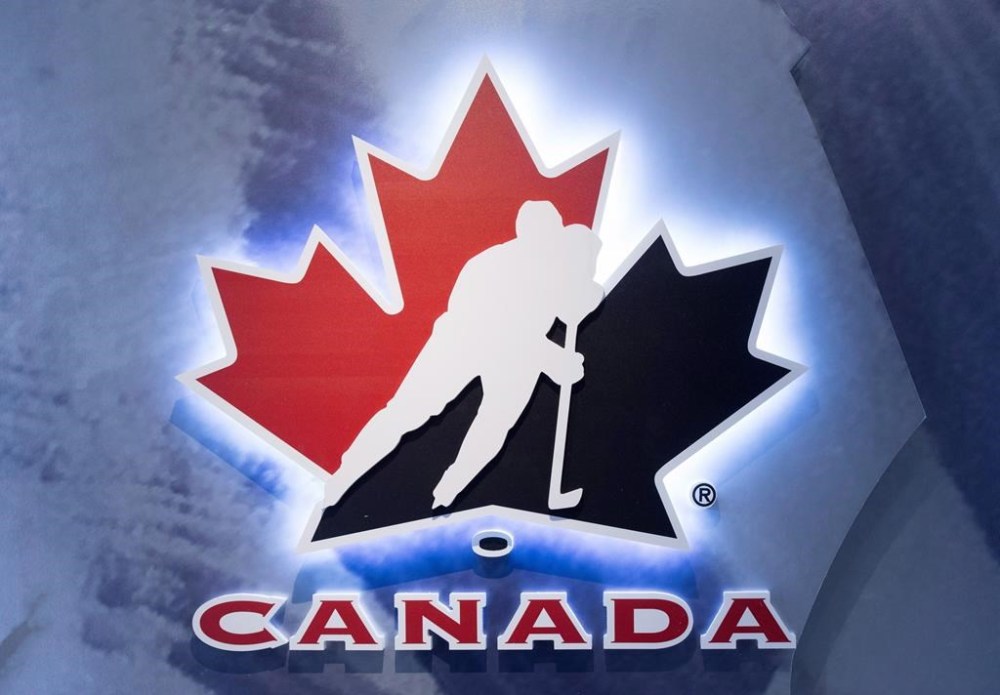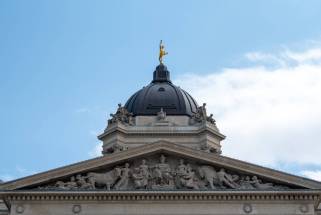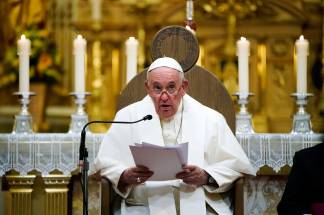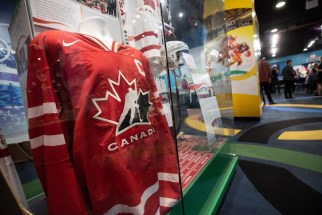Deeper probe required to fix hockey’s problems
Read this article for free:
or
Already have an account? Log in here »
To continue reading, please subscribe:
Monthly Digital Subscription
$0 for the first 4 weeks*
- Enjoy unlimited reading on winnipegfreepress.com
- Read the E-Edition, our digital replica newspaper
- Access News Break, our award-winning app
- Play interactive puzzles
*No charge for 4 weeks then price increases to the regular rate of $19.00 plus GST every four weeks. Offer available to new and qualified returning subscribers only. Cancel any time.
Monthly Digital Subscription
$4.75/week*
- Enjoy unlimited reading on winnipegfreepress.com
- Read the E-Edition, our digital replica newspaper
- Access News Break, our award-winning app
- Play interactive puzzles
*Billed as $19 plus GST every four weeks. Cancel any time.
To continue reading, please subscribe:
Add Free Press access to your Brandon Sun subscription for only an additional
$1 for the first 4 weeks*
*Your next subscription payment will increase by $1.00 and you will be charged $16.99 plus GST for four weeks. After four weeks, your payment will increase to $23.99 plus GST every four weeks.
Read unlimited articles for free today:
or
Already have an account? Log in here »
Hey there, time traveller!
This article was published 29/07/2022 (1229 days ago), so information in it may no longer be current.
Canada’s national sport has become Canada’s national disgrace.
Many in this country thought hockey executives, coaches, players and parents had learned the hard lessons from the scandal and criminal case involving Graham James, the former junior coach who was found guilty of sexually abusing several young players between 1984 and 1995.
Instead, what the country has learned is that hockey’s problems of sexual violence, toxic masculinity, homophobia and entitlement did not go away when the prison door slammed shut behind Mr. James after he was found guilty.
This time it’s Hockey Canada executives — those hired to be stewards of the game from the smallest neighbourhood rinks to the Olympic podium — who are the subjects of intense scrutiny and condemnation for their actions regarding sexual abuse in hockey.

The House of Commons Standing Committee on Canadian Heritage held two days of hearings this week to investigate sexual-assault allegations made against members of Canada’s world junior hockey team at a post-tournament gala in London, Ont., in 2018.
It’s difficult to say whether the standing committee members learned more this week about the case; police have reopened their investigation, and several players who were on the team have denied any involvement in the incident in question.
What’s abundantly clear, however, is that abuse in hockey remains deeply ingrained in the sport’s culture, and hockey executives, including top officials of Canada’s junior leagues and Hockey Canada itself, have been shown to be part of the problem.
Brian Cairo, Hockey Canada’s chief financial officer, told the committee the organization has paid $7.6 million from a special reserve fund to settle nine sexual-assault claims ($6.8 million of which were related to the James case), and that another $1.3 million was paid out for insured sexual-misconduct claims in 12 other matters.
That it required parliamentary hearings for the nation to learn of these payoffs creates a crisis of confidence for Hockey Canada.
During his testimony, Scott Smith, the organization’s newly appointed president and chief executive officer, refused to step down despite demands from several committee members for his resignation. He said the organization needs time to show progress from the changes it is making, and that he is the the right person to lead the effort.
Part of Hockey Canada’s strategy includes the release of an action plan to improve accountability, governance, standards, education and training.
That such a plan was released on the eve of this week’s hearings, rather than 25 years ago when Mr. James was arrested and hockey’s abuse culture first came to light, shows why Hockey Canada’s executives are among the last people who should lead the effort to make the changes the sport requires.
That will require further independent investigations into hockey’s ugly secrets, keeping in mind some of those people who have been abused or those who have launched claims might not wish to come forward.
In the aftermath of Canadian sprinter Ben Johnson’s shocking disqualification at the 1988 Summer Olympics, an inquiry was led by Charles Dubin, the former chief justice of Ontario, to investigate the prevalence of performance-enhancing drugs in Canadian sport. Its recommendations have helped Canada become among the world’s standard-bearers against cheating at the Olympics and other sporting events.
Perhaps that’s where hockey needs to turn next. An expansive probe granted similar powers, headed by a unimpeachable figure such as Mr. Dubin, would have the opportunity to bring necessary reforms to hockey, provide an antidote to its toxic culture and, over time, restore the reputation of the game and the public’s confidence in those charged with leading our national sport.












